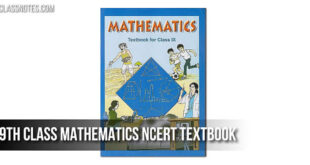Question: What is U.N.O. (United Nations Organisation)?
Answer: U.N.O. is an international organisation which was established in Question:945 (after the end of Second World War) to maintain peace and good friendly relations among the nations of the world and to check the outbreak of war.
Question: Name the members of U.N.O. who enjoy veto power?
Answer: Five countries who are permanent members of the Security Council of U.N.O. enjoy veto power. They are U.S.A., England, Russia, France and China.
Question: A democracy has evolved through long struggle of its own people and another is promoted by some external forces. Based on your understanding of the democracy, which one of the two do you find closer to the idea of democracy? Reason out.
Answer: Although certain external forces also played an important role in the spread of democracy in the world, yet it could not have spread if people did not prefer it and started struggles in their countries for its establishment. So we find the first reason closer to the spread of the idea of democracy.
Question: Each of these statements contains a democratic and an undemocratic element. Write out the two separately for each statement.
(a) A minister said that some laws have to be passed by the parliament in order to conform to the regulations decided by the World Trade Organisation.
Answer: The fact that the laws need to be passed by the parliament is democratic, while conformation to the WTO regulations is undemocratic.
(b) The Election Commission ordered re-polling in a constituency where large scale rigging was reported.
Answer: Re-polling is democratic, while rigging is undemocratic.
(c) Women’s representation in the parliament has never reached 10 per cent. This led women’s organisations to demand one-third seats for women.
Answer: Poor level of women’s representation is undemocratic, while the demand for one-third seats is democratic.
Question: Write a response to the following arguments against democracy:
(a) Army is the most disciplined and corruption-free organisation in the country. Therefore army should rule the country.
Answer: Army officers are not elected by people and hence an army rule would be undemocratic.
(b) Rule of the majority means the rule of ignorant people. What we need is the rule of the wise, even if they are in small numbers.
Answer: Democracy is based on the idea of universal adult franchise. Restricting the rulers from a small section comprising of ‘wise’ people would defeat the purpose of representational democracy.
(c) If we want religious leaders to guide us in spiritual matters, why not invite them to guide us in politics as well. The country should be ruled by religious leaders.
Answer: Religious leaders are not elected by people and hence a country should not be ruled by religious leaders.
 Class Notes NCERT Solutions for CBSE Students
Class Notes NCERT Solutions for CBSE Students



